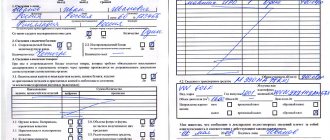Many people travel abroad not only for leisure and sightseeing, but also for the opportunity to purchase exclusive goods. However, before getting home, a person will have to go through customs control. For example, cigarettes can be imported into Russia only in compliance with established standards. To avoid getting into an unpleasant situation, you need to know them in advance.
Duty-free import: how much money and alcohol can be imported into Russia
Some items can be imported into Russia duty-free. Duty-free, that is, free, import applies to:
- Personal items (clothing, jewelry, sports equipment, household appliances, etc.) weighing no more than 25 kg and worth up to 500 € (if transported by plane - up to 10 thousand € ). Personal means anything that is not intended for commercial gain. This is usually checked based on the number, weight and variety of luggage. If you bring five new iPhones across the border, you will most likely be forced to declare four of them and pay a fee;
- As for how much money can be brought into Russia, cash in any foreign or Russian currency equivalent to an amount not exceeding $10,000 ;
- Many people are interested in how much alcohol can be imported into Russia without duty. We answer - up to 3 liters of alcohol per person , 200 cigarettes or 250 grams of tobacco (even if all this was purchased at Duty free). More tobacco or cigarettes cannot be transported even in declared form;
- Inherited things of any value (you will have to present documents of inheritance);
- Items that were purchased in Russia and taken out of it (if there is evidence of this);
- Urns containing ashes or remains of the deceased;
What are the age restrictions?
Each republic has its own age restrictions regarding the import of tobacco products.
It is allowed to be imported into the Bulgarian Republic only by people over 16 years of age, and import into the territory of the Norwegian Republic is prohibited for persons under 18 years of age.
It cannot be imported into Israel by people under 17 years of age, and Icelandic legislation prohibits import by persons under 18 years of age.
Only people over 21 years of age can import into the United States. Persons under 17 years of age cannot be imported into Germany, France or Lithuania. Egypt allows import to travelers over 15 years of age, while Japan only allows entry to those over 20 years of age. A person over 19 years old can bring products to Canada, and over 18 years old to Mexico.
Special rules for transportation across the Russian border for some foreigners
Restrictions on the amount and weight of imported personal property do not apply to refugees and internally displaced persons. This category of foreigners has the right to take with them any number of things if: a) these items have already been used , and b) were purchased before entering the Russian Federation;
Infographics taken from the site vladimirnews.ru
This rule does not apply to participants in the state resettlement program. Once, using the Participant Certificate, they can transport any number of used items across the border of the Russian Federation. The same conditions are provided for Russian citizens who, for some reason, lived outside Russia for more than six months and are now returning home.
The rules for importing currency, alcohol and tobacco products are the same for everyone. Including for the above-mentioned categories of foreigners.
Please note: Products made of precious metals worth over 500 euros (10,000 € when transported by air) require declaration upon entry into Russia. There is one catch: you can travel outside the country in a necklace worth 5 thousand euros without declaring it. But when returning back, you may be required to declare the jewelry and pay tax. The amount will be looked at either by receipts (which most likely are not available) or by brand catalogs. For refusal, a fine may be issued and the jewelry may be confiscated. To avoid problems, it is better to declare expensive items upon departure.
Are cigarettes allowed?
To the question of whether it is possible to carry cigarettes on an airplane, the answer can be unequivocal - yes. But it is worth remembering that a person will not be able to use, that is, smoke them, since there is a law prohibiting smoking on an airliner.
You can carry cigarettes both in hand luggage on the plane and in checked luggage.
There are no requirements for this. The rules and regulations for the transportation of cigarettes specify the requirements for lighters. Customs officers will allow you to carry a lighter in your hand luggage only if it is not gasoline and in the amount of no more than one piece.
Gasoline lighters ignite easily (even faster than gas lighters), and this is already considered a potential threat to an airliner that carries a large amount of fuel materials.
The law does not prohibit the carriage of cigarettes in hand luggage or airplane luggage. It makes no difference where tobacco products are transported. It depends only on the desire of the person himself.
Carrying cigarettes in hand luggage
There is no difference between carrying cigarettes in checked baggage or carry-on baggage. The transport of tobacco products in the cabin of an airplane is subject to the same customs restrictions and only them.
The main thing to remember is that smoking on board an aircraft is strictly prohibited! If you are caught doing this, you cannot avoid a fine, and in some countries, communication with the police. Saudi Arabia and the UAE are particularly strict. Smoking is prohibited by law on board and in the USA.
So don’t take risks - you won’t be able to smoke in an airplane toilet undetected; smoke detectors will give you away with 100% probability.
The carriage of lighters in the aircraft cabin deserves special mention. You are allowed to take one lighter on board, but in no case a gasoline lighter - it is considered a flammable item and will be confiscated during pre-flight inspection.
Peculiarities of importing certain things into the Russian Federation - what is not included in the list of personal items?
Some categories of property, even if they cost less than 500 € and weigh less than 50 kg, cannot be considered items for non-commercial use. According to the rules of import into the Russian Federation, this list includes not the most trivial items:
- diamonds, gems and metals valued at over $25,000;
- central heating boilers (what if);
- fish and seafood over 10 kg and sturgeon caviar over 250 grams;
- fuel over 10 liters in separate containers;
- internal combustion engines;
- all kinds of agricultural equipment, with the exception of lawn mowers and sports fields;
- vehicles for special or industrial purposes;
- medical furniture and equipment, with the exception of what is necessary along the route;
- slot machines;
- solariums;
- equipment for photo laboratories;
More details about this list can be found in the official document. The rules for importing into the Russian Federation are such that when deciding whether the things you are importing are considered items of non-commercial use, customs officers look not only at the weight and amount, but also at how often a person crosses the border back and forth. The more often, the higher the chance that they will inspect you more carefully and they will most likely not believe the story that all 10 fur coats were bought exclusively for themselves.
Transporting more than the permitted volume of caviar, fish or seafood leads to confiscation.
Legislative framework: what are called tobacco products?
Important! Please keep in mind that:
- Each case is unique and individual.
- A thorough study of the issue does not always guarantee a positive outcome. It depends on many factors.
To get the most detailed advice on your issue, you just need to choose any of the options offered:
- Use the online chat in the lower corner of the screen.
- Call: Federal number: +7 (800) 511-86-74
Let's turn to the current legislation. The definition of the concept of “tobacco products” is enshrined in Law No. 268. The category includes a whole list of products. It includes:
- tobacco;
- cigars and cigarillos;
- cigarettes and cigarettes.
Customs officers check persons entering the territory of the Russian Federation. Even those products purchased at Duty Free will be taken into account. Today there are quite strict rules. Their adoption was carried out in order to prevent the unauthorized sale of tobacco products.
Declared goods and things for import into the Russian Federation
Based on the points outlined above, it is not difficult to draw a conclusion about what items need to be declared. Let's list them:
- Personal items worth more than 500 € (10,000 for an aircraft) or weighing more than 25 kg are declared. The tax cost is 30% of the customs value;
- Alcohol over 3 liters - tax 10 € per extra liter, while the maximum amount of even declared alcohol per person is 5 liters. The rest is confiscated. Please note that the alcohol limit is calculated only for people over 18 years of age.
- Currency over $10,000 is declared. If the amount exceeds $100,000, documents about the origin of the money will be required;
- Prescription drugs and medications that contain narcotic substances are required to be declared. You don’t need to pay anything, but you will be required to show the recipe;
- Products of plant or animal origin weighing more than 5 kg or without original packaging. If you are allowed to declare French cheese in vacuum packaging, even weighing over 5 kg, then, say, homemade lard, even if it is the correct weight, but wrapped in newspaper, can be confiscated. But problem products are most often encountered at the airport. Those traveling by train or car are not often checked about food.
- Cultural assets (works of art, antiques, icons, coins, ancient books, etc.) are subject to declaration if they cost more than 1,500 €. Not subject to tax;
Documents when crossing customs
To cross the state border, citizens must present documents to customs officials. The specific package, of course, will depend on the identity of the traveler, the goods he imports, (amount of imported funds, specific items, etc.) their value and classification.
According to the leaflets approved by the Federal Customs Service letter No. 04-30/34327 dated July 19. 2021, the required documents include:
- identification documents: international passport, passport, driver's license (when crossing the border by car), birth certificate (for children) and so on;
- documents confirming the legal representation of the interests of minors: adoption certificate, birth certificate;
- documents confirming the price of imported items and ownership of them;
- waybills and other transportation documents;
- documentary evidence of the availability of customs benefits for imported luggage;
- documents confirming the fact of personal use of the imported vehicle, and so on.
Please note that this list is not exhaustive: depending on the specifics of the specific situation, customs officials may require other documents provided for by the Customs Code of the Customs Union, in force at the beginning of 2021.
What absolutely cannot be transported across the Russian border?
Prohibited for import into the Russian Federation:
- Food without special packaging (discussed above);
- Printed or electronic materials that could be classified as pornography, propaganda of terrorism, incitement to conflicts on national or racial grounds, or disclosure of state secrets;
- Plants and animals on the verge of extinction;
- Psychotropic substances;
- Weapons (cold steel, firearms, gas, pneumatic) and ammunition, unless there is a special permit for them;
- Human organs and biomaterials;
Import of animals and plants to Russia
- VRP
How to confirm income when applying for a residence permit
- Elena Voropaeva
- 19.03.2020
Pets and geraniums in a pot can be transported. However, the animal must have either an international passport issued by a veterinarian or a vaccination certificate. This or that document must contain a note about inspection by a specialist no earlier than 5 days before sending. Dogs must be vaccinated against rabies, canine distemper, hepatitis, viral enteritis, parvo- and adenovirus infections, and leptospirosis. Cats - from rabies and panleukopenia. Pets from foreign countries must have a chip with personal data. Animals from CIS countries are exempt from the latter requirement. The maximum weight of the animal is 50 kg, and the cost is 1000 euros.
Unvaccinated pets cannot be transported, even if they are not yet required to be vaccinated due to their age.
As for plants, the import of soil and seeds (including potato tubers, for example) is strictly prohibited. Potted plants or bonsai require an international phytosanitary certificate for transportation. This certificate is valid for 15 days.
Removal of property from the Russian Federation
We have dealt with the first half of the question of what can and cannot be transported across the Russian border. Let's move on to the second one. Export rules are slightly looser than import rules. Products and things can be exported duty free. The exceptions are:
- Jewelry valued at over $25,000;
- Fuel is not in the car tank - up to 10 liters is possible, more is not possible;
- Fish and seafood - no more than 5 kg;
- Black caviar - no more than 250 grams;
The situation with the export of flora and fauna is exactly the same as with the import: you need a passport, vaccinations and phytosanitary certificates.
Cultural property is required to be declared and, in some cases, requires a license from the Ministry of Industry and Trade or the Ministry of Culture of the Russian Federation on a form with an official seal.
Subscribe to Migranta Rus: Yandex News.
How to pack correctly
There are no established standards among airlines for the packaging of transported alcohol. The main rule is to maintain the integrity of the bottle, so adhere to the following recommendations:
- do not place hard or heavy objects in a suitcase or bag next to the bottle;
- do not place bottles next to each other, pack clothes and soft items between containers;
- if the bottles are placed near the walls of the suitcase, there is a risk of the containers breaking during transportation: they will hit when moving;
- soft duffel bags are not reliable storage; hard-sided suitcases are better.










